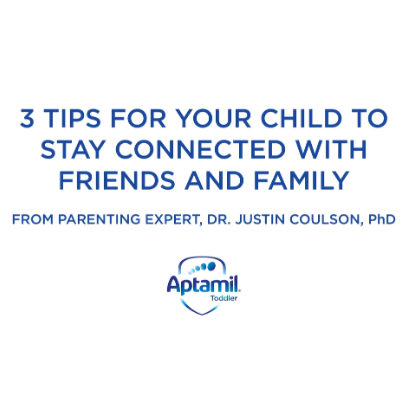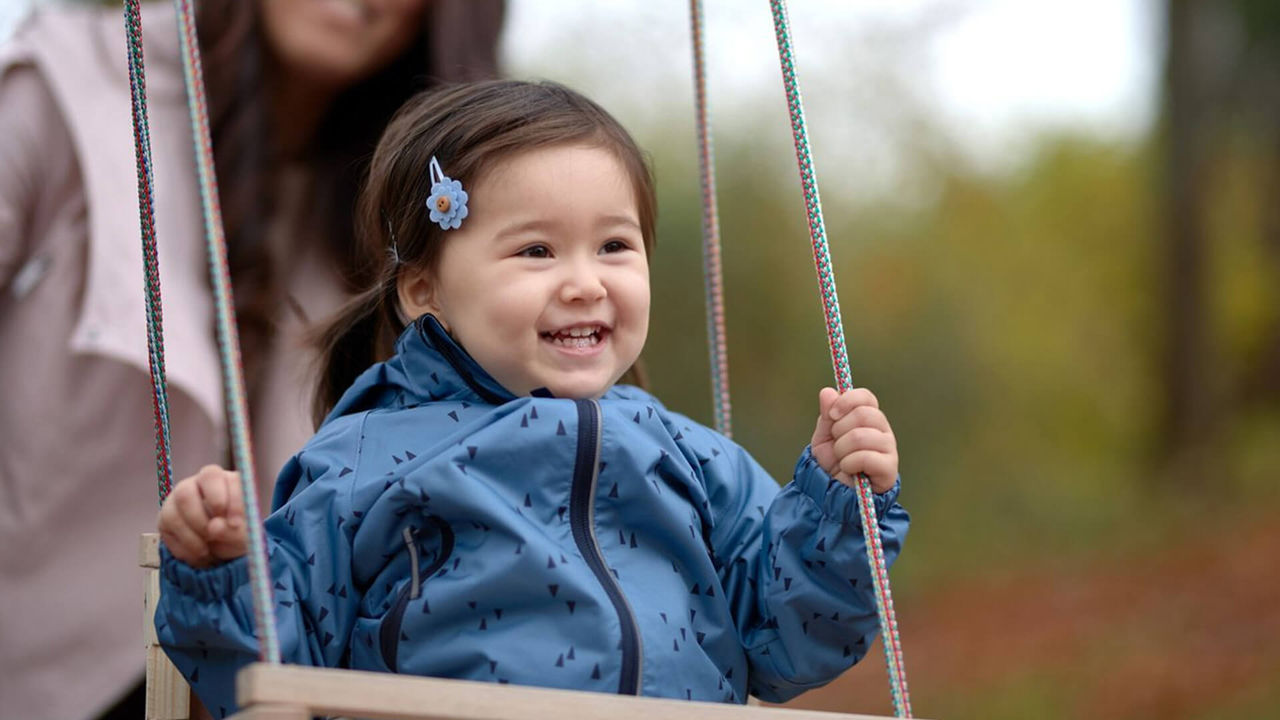By Australian parenting expert and father of 6, Dr Justin Coulson, PhDWellbeing researchers from around the globe suggest that our children are most likely to develop healthily if we can help them with the following 5 things, even under restricted circumstances: Connect, Be active and healthy, Keep learning, Slow down, and Give. As our current environment reshapes the way we live in our families, at least temporarily, it’s critically important that we help our children thrive in such unusual circumstances. But what do infants, toddlers, and pre-schoolers need most right now? And is it different to what they normally need from us? Wellbeing researchers from around the globe suggest our children are most likely to develop healthily if we can help them with the following 5 things, even under restricted circumstances:
Connect
There is simply no substitute for connection. To a child, LOVE is spelled T-I-M-E. Just like dollars are the currency of our economy, connection is the currency of our relationships. Feeling connection and belonging is a basic human need. When they feel it and know it, they are happy and resilient. But when we are struggling to work from home, or have lost a job, or when we are tired and stressed and juggling priorities and children, how do we make deep connections and show love? Here are 3 ideas:
- Stop, look, and listen. When your child is wanting attention, stop what you’re doing, look them in the eyes, and listen to them. Ensure they feel heard. Make them a priority.
- Reduce pressure. Slow things down so you can really be in the moment together. Take pressure off yourself in relation to work and other commitments and take pressure off your child in terms of “home learning” and enrichment. Just focus on being in the moment together and doing one thing well right now.
- Find ways to laugh and enjoy one another. Play. Listen to music. Dance. Have fun.
Be active and healthy
One of the most effective ways to encourage wellbeing is to encourage physical activity and healthy behaviours. For parents of young children, that means we want to do the following:
- Make sure that our children are being active. And remember that activity with others builds health and connection. So be active together.
- Ensure they enjoy nature. Nature is fuel for the soul. Be outside as much as current restrictions allow.
- Sleep is essential for good health, growth, and wellbeing. Minimise noise and distractions so your little ones get enough sleep.
- Ensure the family diet is healthy and full of the nutrients little ones need to grow strong
Keep learning
One big risk during times where movement is restricted is that screens can take over, and life can grind to a halt. This is especially the case when parents are trying to work from home, run a house, and care for children. But our children are designed to learn and master, and they want stimulation. This doesn’t mean we should hire tutors for toddlers! It does mean that we should:
- Read to our little ones every day. Slowly.
- Engage in fun activities that are open-ended, so the results might always be different. It could be playing with a balloon and trying to keep it off the ground or colouring the concrete outside with chalk. Surprise and novelty stimulate little brains.
- Bring them into the kitchen and invite them to help you cook! It can be slow – and messy – but it builds connections and gives them delightful learning time with you.
Slow down
Infants, toddlers, and pre-schoolers can be energetic. But they also know how to slow down and take it all in. We just need to give them those opportunities. It’s good for their mental health, and ours. Try these ideas:
- Lie down for daytime naps, listen to soft music, and gently stroke them
- Stare at the clouds and play games with the shapes each cloud makes
- Teach them to be still and take three deep breaths a few times each day
Small moments of calm are anchoring, connecting, and revitalising for the next round of activity and excitement!
Give
Our little ones feel best about life when they are helping others. They love to give and be kind. Find ways to help them reach out to help. For example, they could:
- Write letters to grandparents
- Do clean up games with Dad
- Help you with community service tasks that you’re doing to make a difference to others
These 5 simple steps can be done in any home in any circumstances. And they will help every child build resilience and wellbeing, regardless of restrictions.





